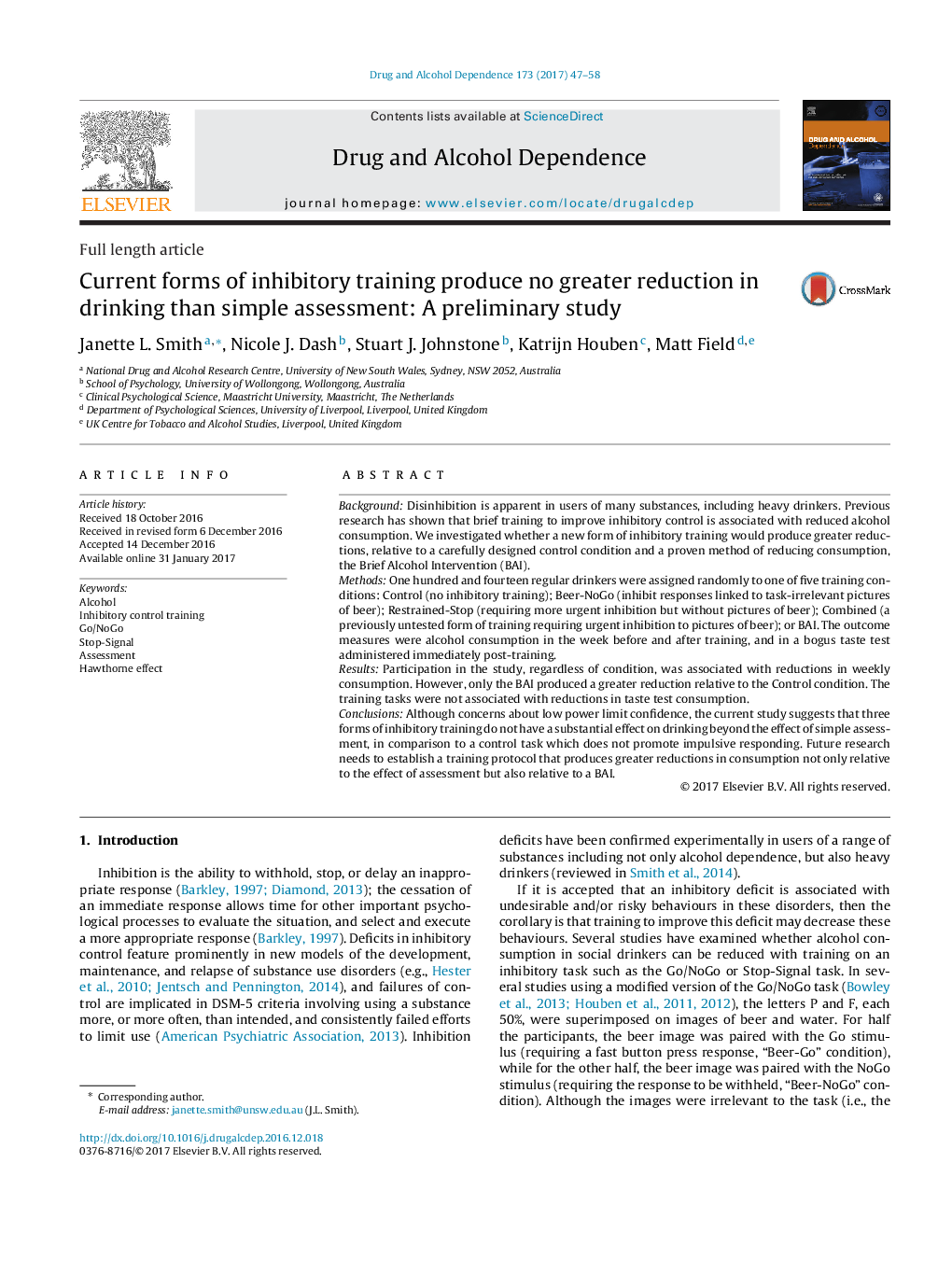| کد مقاله | کد نشریه | سال انتشار | مقاله انگلیسی | نسخه تمام متن |
|---|---|---|---|---|
| 5120154 | 1486118 | 2017 | 12 صفحه PDF | دانلود رایگان |
- Previous research indicates inhibitory training reduces alcohol consumption.
- We tested two old and one new form of training.
- Participation in the study reduced weekly alcohol consumption.
- Inhibitory training yielded no greater effect than a non-training control condition.
- The search continues for an effective training protocol.
BackgroundDisinhibition is apparent in users of many substances, including heavy drinkers. Previous research has shown that brief training to improve inhibitory control is associated with reduced alcohol consumption. We investigated whether a new form of inhibitory training would produce greater reductions, relative to a carefully designed control condition and a proven method of reducing consumption, the Brief Alcohol Intervention (BAI).MethodsOne hundred and fourteen regular drinkers were assigned randomly to one of five training conditions: Control (no inhibitory training); Beer-NoGo (inhibit responses linked to task-irrelevant pictures of beer); Restrained-Stop (requiring more urgent inhibition but without pictures of beer); Combined (a previously untested form of training requiring urgent inhibition to pictures of beer); or BAI. The outcome measures were alcohol consumption in the week before and after training, and in a bogus taste test administered immediately post-training.ResultsParticipation in the study, regardless of condition, was associated with reductions in weekly consumption. However, only the BAI produced a greater reduction relative to the Control condition. The training tasks were not associated with reductions in taste test consumption.ConclusionsAlthough concerns about low power limit confidence, the current study suggests that three forms of inhibitory training do not have a substantial effect on drinking beyond the effect of simple assessment, in comparison to a control task which does not promote impulsive responding. Future research needs to establish a training protocol that produces greater reductions in consumption not only relative to the effect of assessment but also relative to a BAI.
Journal: Drug and Alcohol Dependence - Volume 173, 1 April 2017, Pages 47-58
